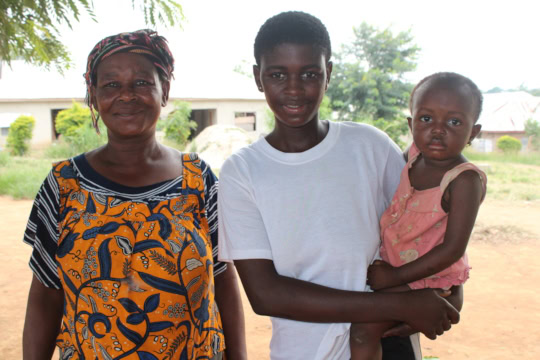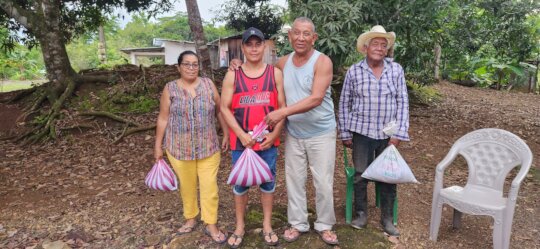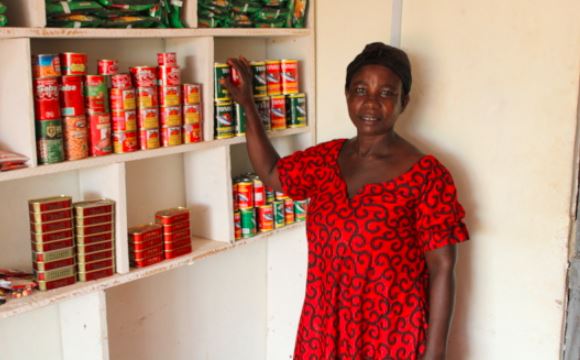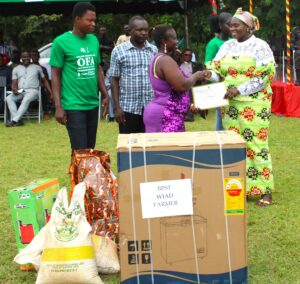Micro-loans unlock talents

Diana displays her products in March 2014
Dinah is 50 years old and a native of Bedaabour in Ashanti region of Ghana. She is a product of the old Ghanaian education system, in which basic school curricula included practical teaching of home science and technical skills.
Like others her age, Dinah learned from a young age how to make dresses with needles. After middle school she became a trader and ‘yaadee yie’; someone who carries sewing machine and move from house to house to mend cloths.
This type of hands-on training for youth was critical for Dinah and others like her, but insufficient on its own: she needed access to micro-loans and market avenues as well.
In January 2013, Dinah joined Self Help International’s micro-credit program and used her loan to purchase and start selling fabrics to earn additional income. Ready access to fabrics revived knowledge and skills she acquired decades ago as a school girl. Dinah tells SHI, “I was never an apprentice seamstress. I am here as a result of needle work lessons I had decades ago and micro loans from SHI.”
She now sews and sells dresses to her community members. An apt businesswoman, she offers to sew dresses at discounted rates for those clients who purchase their fabric from her.
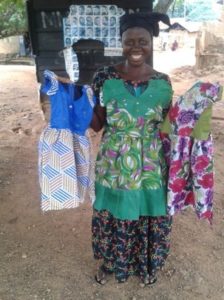
In August Diana shared some new designs
When visited in August 2014, Dinah had made dresses that compete favorably in her local market. It is obvious from her designs that she is not only good at cutting and putting fabrics together but she also understands colors.
Dinah has 6 children (4 females and 2 males) aged between 9 and 27 years and is able to take good care of them. With the profits earned from her business, she is building a 3-bedroom house to shelter her family and plans to expand her business to be able to train and employ more young women in her community.
Sharing her trade is important to ensuring that future generations of women are able to develop the skills they need to participate in the village economy. Over the past few decades, the educational system of Ghana, like many developing countries, has undergone a transformation aimed at achieving a more efficient system that produces quality human resource to achieve national development. In the process, many practical education programs were cut.
In the old system, girls were taught to cook delicious local dishes and do needlework, sewing beautiful baby dresses and table cloths, while boys learned to mark and cut wood. The benefits of this type of practical training were enormous. Almost every household had needles which were used to mend torn dresses and it was common to see pupils with patched school uniforms. Though it wasn’t always pleasant to the eye, it saved the family money.
The situation is different today. People, especially those products of the new education system, readily replace their old worn out clothes by purchasing used ones that are imported largely from Europe rather than mending their old clothes. These imports contribute to the collapse of indigenous fabric and dress making industries, and the ever worsening unemployment situation. Current unemployment rate is around 40% and it is not surprising that crime rates are high nowadays.
Women like Dinah set a strong example for others of using their talents to advance local industry. There are several other “Dinahs” in Ghana who need access to credit in order to unlock their talents as well. Such individuals constitute the much needed growth poles to bring about development in Africa.
Please join us in helping the next “Dinah” explore her talent and grow her businesses as well! Click here to donate now.

